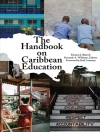Since its publication more than ten years ago, Social Work Practice has been widely used as a succinct and focused book to prepare human service providers in the key components underpinning direct practice. This second edition builds on the first edition’s success at synthesizing the latest theories and practice models; helping and change processes; empirical findings; and practice skills, and demonstrates how these interlinked dimensions contribute to the EPAS 2015-endorsed model of holistic competence.
The second edition of Social Work Practice is updated with new empirical findings and foundational information, while also supplementing the text with the concepts and competencies in EPAS 2015. With an overall theme of holistic competence, it incorporates the significant role of cognitive and affective processes in social workers’ professional practice and discusses ways of developing and maintaining a reflective practice. With useful material on interpersonal communication, cross-cultural practice, and the use of technology in one guide, Marion Bogo lays a general foundation for social work practice and professional development.
Jadual kandungan
Acknowledgments
Introduction
Part I: Conceptual Frameworks for Social Work Practice
1. A View of Holistic Competence
2. Holistic Competence: Cognitive and Affective Processes
3. Learning to Practice
4. The Helping Relationship: Conceptual and Empirical Contributions
5. Engage Diversity and Difference
6. The Helping Relationship: From Theory to Practice
7. Contemporary Practice Issues
Part II: The Process of Helping in Social Work Practice
8. Beginnings
9. Toward Developing Shared Understanding: Assessment and Formulation
10. The Social Worker as Process Expert
11. Change Processes Continued
12. Endings
Part III: Interviewing in Social Work Practice
13. Communication and Interviewing Skills
References
Index
Mengenai Pengarang
Marion Bogo is a professor at the Factor-Inwentash Faculty of Social Work, University of Toronto. She is the coauthor of
The Practice of Field Instruction in Social Work: Theory and Process (Columbia, 1998) and a recipient of the Significant Lifetime Achievement in Social Work Education Award from the Council on Social Work Education.












